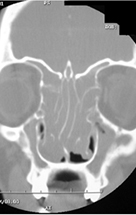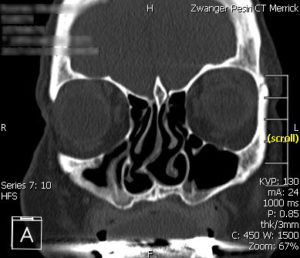Nose Disorders

Nasal Allergies (Allergic Rhinitis)
Nasal allergies are usually due to environmental factors as well as exposure. Symptoms include runny nose, itching in the nose, as well as nasal stuffiness. After examination of the nasal anatomy, allergy testing can further help diagnose the sources of irritation. Treatment usually includes nasal sprays, antihistamines, or allergy shots.
Sinusitis
Sinusitis usually refers to infection of the sinuses. The typical symptoms include headaches, fever, and drainage of pus from the nasal passages, as well as postnasal dripping and difficulty with breathing. Treatment of the acute symptoms includes antibiotics, and nasal irrigation, as well as decongestants. For patients with chronic symptoms, endoscopic sinus surgery may play a role in reducing the predisposition for future infections. Dr. Namdar is also trained in balloon sinuplasty, which is a new minimally invasive technique for opening of the sinus passages.
Nasal Polyps
 Nasal polyps are thought to be due to ongoing irritation and inflammation of the nasal passages. They may fluctuate in size and further contribute to nasal obstruction. Nasal decongestants and nasal steroids are the usual first line treatment for this problem. In the long-term, some patients may benefit from removal of the polyps to further open the nasal passages.
Nasal polyps are thought to be due to ongoing irritation and inflammation of the nasal passages. They may fluctuate in size and further contribute to nasal obstruction. Nasal decongestants and nasal steroids are the usual first line treatment for this problem. In the long-term, some patients may benefit from removal of the polyps to further open the nasal passages.
Nose Bleed (Epistaxis)
Nosebleeds refer to any type of bleeding from the nasal passages. More people are prone to this problem during the winter months where the temperatures are down and the humidity is low. Preventive measures include having a humidifier in the bedroom for the duration of the night, as well as application of nasal lubricants. Patients with active nosebleed are encouraged to contact the office immediately for an evaluation and control of the bleeding.
Deviated Septum


